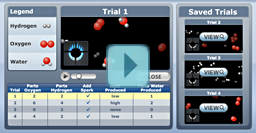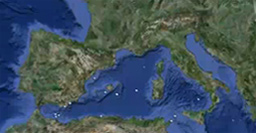What is SimScientists?
The SimScientists program in WestEd's Science, Technology, Engineering & Mathematics (STEM) program is comprised of a portfolio of research and development projects that focus on the roles that simulations can play in enriching science learning and assessment. The capabilities of technology allow modifications of simulation-based activities to offer accommodations for English learners and students with disabilities. Science simulations can be used in curriculum activities, as embedded, formative assessments, and as summative assessments.
The SimScientists program investigates design principles to guide the creation of effective simulations as learning and assessment tools. In addition, the SimScientists program studies how science simulations can be used at different levels of the educational system—classroom, district, and state in balanced state science assessment systems.




